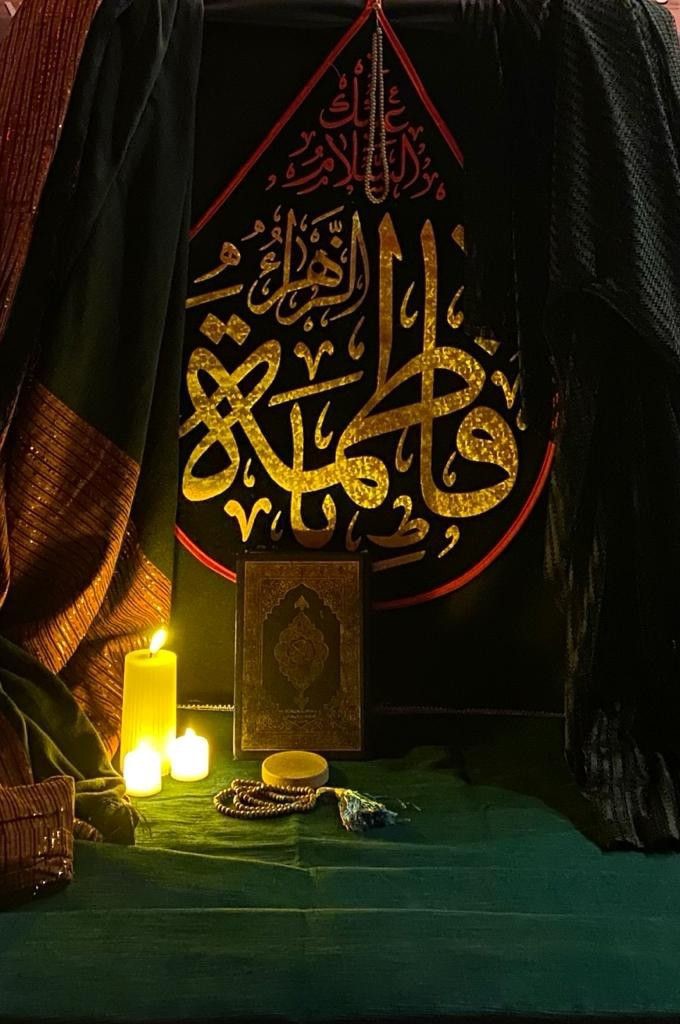Hazrat Musa(a.s), the Calf-Worshippers, and Allah’s Mercy

Exegesis of Surah Baqarah: Verse 2:54
Regarding the Almighty’s words
:وَإِذْ قَالَ مُوسَىٰ لِقَوْمِهِ يَا قَوْمِ إِنَّكُمْ ظَلَمْتُمْ أَنفُسَكُم بِاتِّخَاذِكُمُ الْعِجْلَ فَتُوبُوا إِلَىٰ بَارِئِكُمْ فَاقْتُلُوا أَنفُسَكُمْ ذَٰلِكُمْ خَيْرٌ لَّكُمْ عِندَ بَارِئِكُمْ فَتَابَ عَلَيْكُمْ إِنَّهُ هُوَ التَّوَّابُ الرَّحِيمُ
When Musa addressed his people, he said, “O my people, you have wronged yourselves by taking the calf as a god. Now, turn in repentance to your Creator and purify yourselves by sacrificing those among you who led this transgression. This is better for you in the sight of your Creator.” In His infinite mercy, Allah accepted their repentance, for He is the Oft-returning to mercy and the Most Merciful. (Surah Al-Baqarah, 2:54)
The story of Prophet Musa (a.s.) and the Israelites’ deviation into calf worship is a profound lesson in faith, repentance, and divine justice. It highlights how Allah’s mercy embraces even the gravest sinners when they sincerely repent and seek the right intercession. Let’s read this event and uncover its timeless lessons.
The Calf’s Exposure: A Divine Revelation
When Musa (a.s.) was away receiving the divine commandments, some Israelites, led astray by Samiri. They began worshipping a golden calf. Samiri’s deception enthralled the people. Leading them to believe the calf held divine power. However, Allah, in His wisdom, granted the calf the ability to speak. Exposing the deceit and proving its falsity.
Musa (a.s.) returned to find his people in this state of sin. He destroyed the idol, breaking it into tiny particles and scattering the remains into a nearby river. Those who drank the water turned black-faced, marking them as the worshippers of the calf. This divine sign separated the guilty from the innocent.
The Divine Command: Punishment for Idol Worship
Allah commanded Musa (a.s.) to order the innocent among the Israelites. Those who refrained from worshipping the calf—to punish the offenders.
These 12,000 faithful individuals were tasked with a painful duty: to strike down their own loved ones who had fallen into sin.This was no easy task. Many wept, questioning how they could harm their fathers, mothers, and siblings. They felt their burden was greater, for though they had not sinned by worshipping the calf, they were now part of a severe test.
Why This Punishment? The Importance of Opposing Sin
Allah explained to Musa (a.s.) why even the innocent had been subjected to such a trial. Though they had not worshipped the calf, they had also not distanced themselves from the sinners. They failed to oppose the wrongdoing actively, remaining silent and passive in the face of idol worship.This silence, Allah revealed, was a grave error. It taught the Israelites that failing to resist sin can make one complicit in it. True faith demands standing against wrongdoing, even when it is uncomfortable or difficult.

The Power of Intercession Through Muhammad (S) and His Progeny
To ease their overwhelming burden, Allah revealed a special prayer to Musa (a.s.). He taught the people to invoke the names of Prophet Muhammad (S) and his holy progeny for intercession. The prayer was a plea for mercy and strength during this trying time.The people recited:
“O Our Lord! We plead to You with the mediation of Muhammad (S), the best of creation, and Ali (a.s.), his successor, along with Fatima (a.s.), Hasan (a.s.), and Husain (a.s.). We also seek the intercession of the Holy Imams. Forgive our sins and lift this trial from us.”
As they prayed, the atmosphere transformed. What seemed an unbearable task became easier for them to carry out. The power of intercession brought a sense of divine peace to the situation.
A Transformative Realization
As the punishment continued, the people reflected on their situation. They realized the immense power of invoking Muhammad (S) and his progeny as mediators. They lamented that had they sought this intercession earlier, they might have avoided the sin of calf worship altogether.This realization led to a collective plea for forgiveness. They turned to Allah with sincerity, asking for His mercy through the mediation of the Prophet (S) and his family.
Allah’s Mercy Brings Relief
Their heartfelt prayer reached the heavens. A divine voice responded to Musa (a.s.), instructing him to end the punishment. The voice declared that this intercession was so powerful that had it been invoked by even the worst sinners, such as Firon or Iblis, they would have been guided to the right path.The people were overwhelmed with regret for their delay in seeking this mediation. They recognized the boundless mercy of Allah and the transformative power of the Waseelah (intercession) of Muhammad (S) and his family.

Lessons from the Event
This story offers profound lessons for people of all faiths:
Active Opposition to Sin: Silence in the face of wrongdoing makes one complicit. True faith requires standing against sin, even when it involves personal sacrifice.
The Power of Mediation: Invoking Allah’s chosen ones as intermediaries brings divine mercy and eases trials.Repentance Always Has Hope: No matter how grave the sin, sincere repentance and the right intercession lead to forgiveness and guidance.
Unity in Faith: The collective prayer of the people, guided by the teachings of Musa (a.s.), demonstrates the strength of community in seeking Allah’s mercy.

Conclusion:
A Timeless Reminder: The story of Musa (a.s.) and the calf-worshippers is a timeless reminder of Allah’s justice and mercy. It underscores the importance of standing against sin. Seeking repentance, and relying on the mediation of those closest to Allah.
By reflecting on this event, we are reminded of the boundless love of the Creator, who forgives and guides even the gravest sinners when they turn to Him with sincerity.
Let this story inspire us to remain steadfast in faith, resist wrongdoing, and never underestimate the power of sincere prayer and intercession.

Post Comment